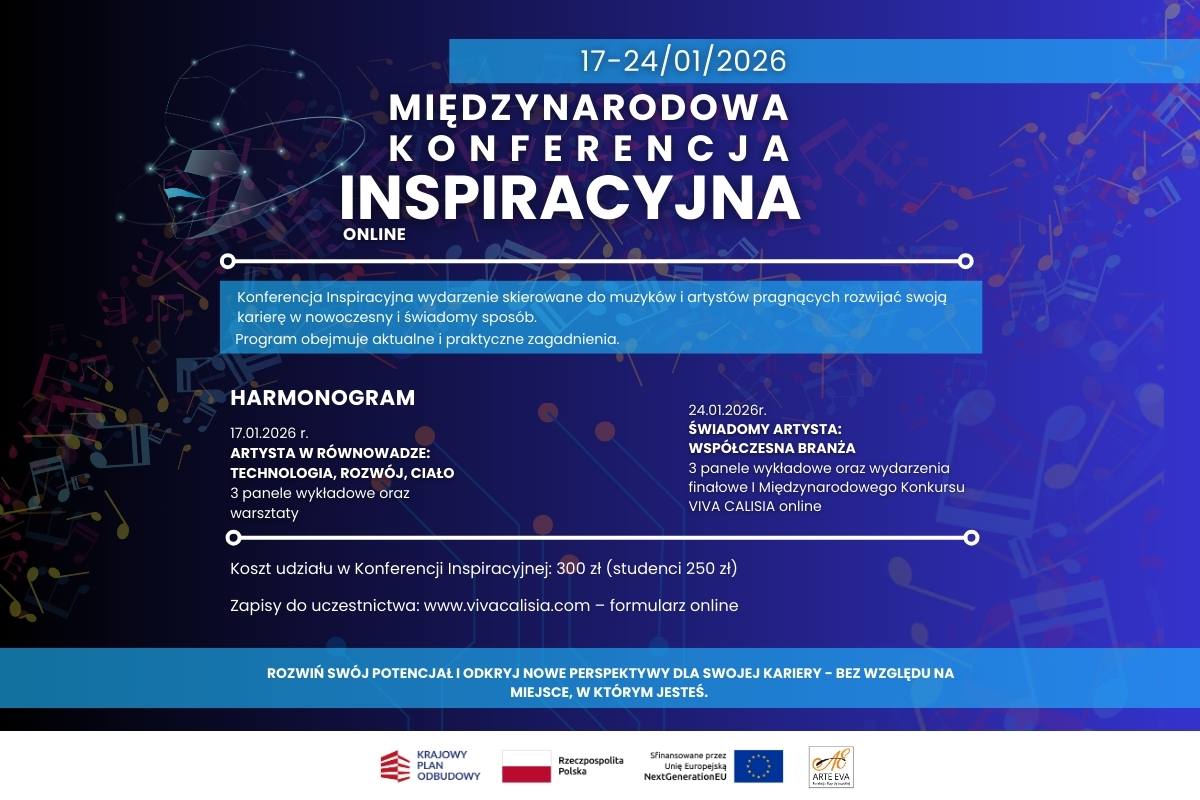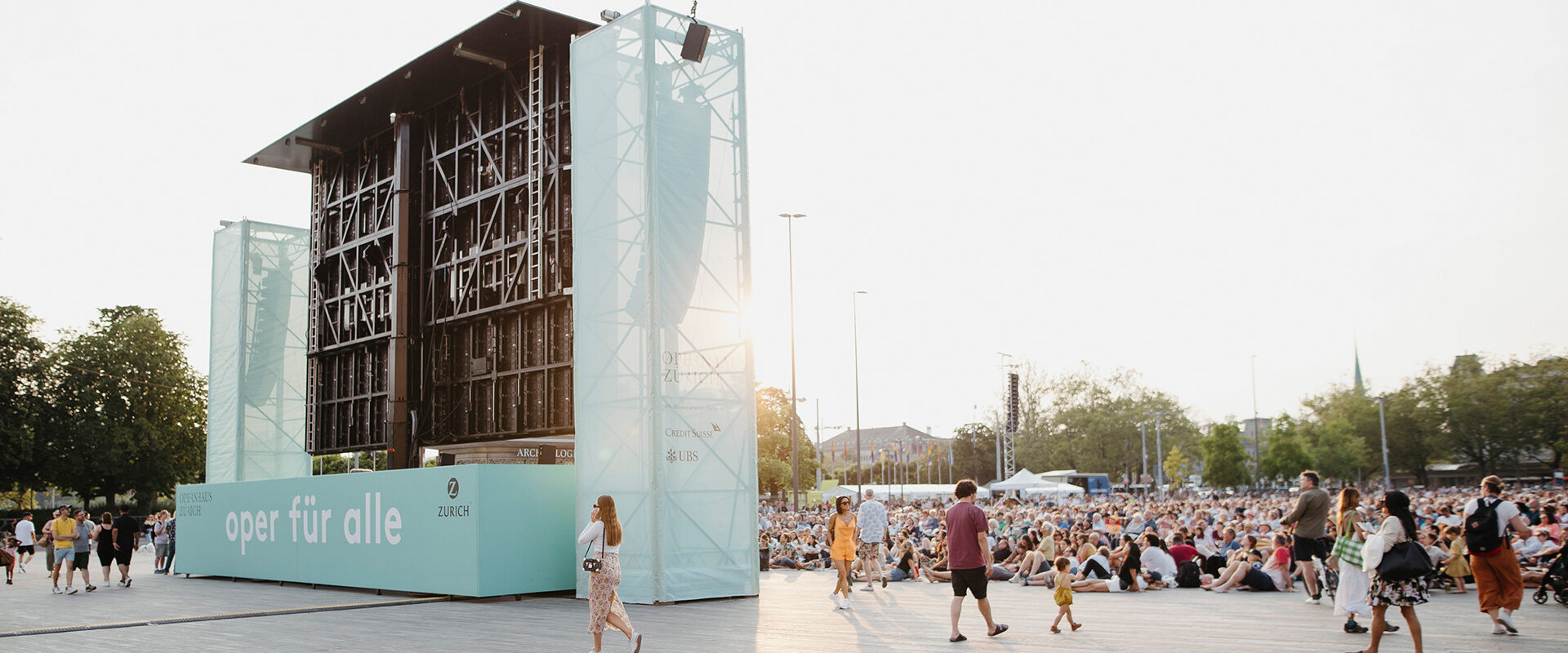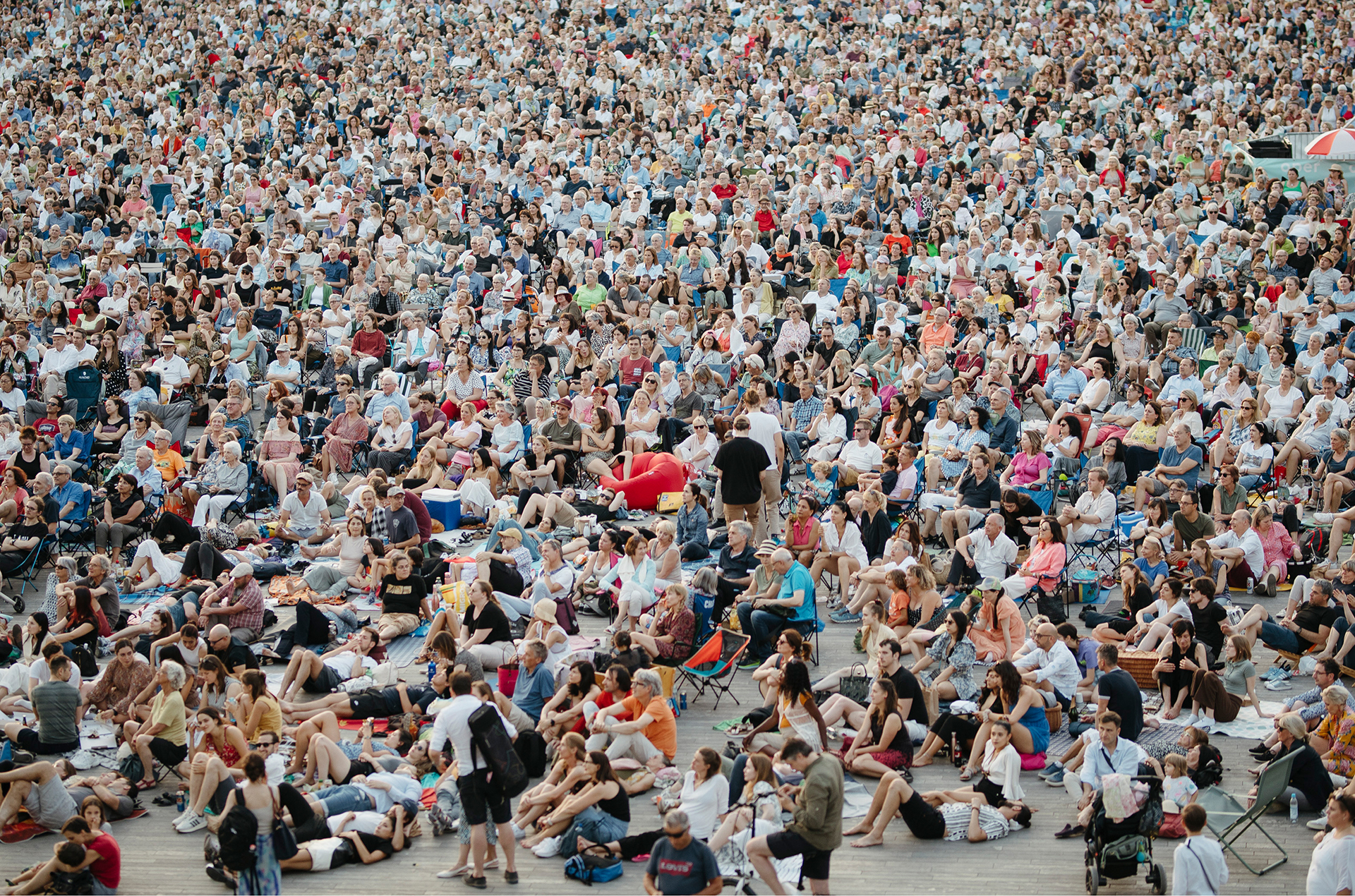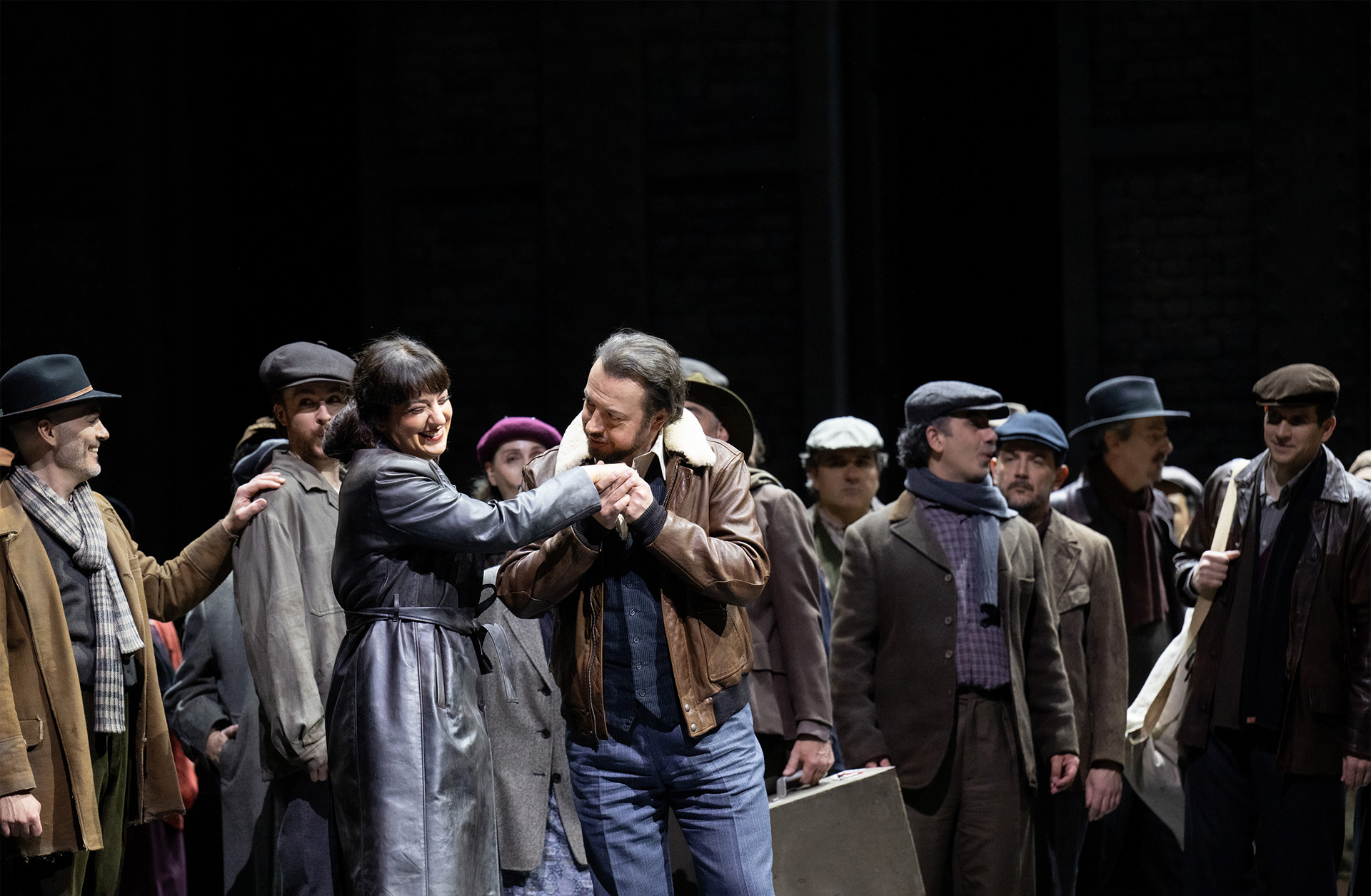 “Oper für Alle, Oper für Alle, that’s what you call socialism” – by Marzena Mikosz
“Oper für Alle, Oper für Alle, that’s what you call socialism” – by Marzena Mikosz
“Oper für Alle, Oper für Alle, that’s what you call socialism” – my husband summed up preparations for another picnic in front of the Zurich Opera House. Since 2013, anyone present at the Sechseläuten square mid-June can participate in an opera performance and comment on it in real time, without disturbing anyone.
”Oper für Alle” (opera for all) has been a popular concept in German-speaking countries. Aside from Zurich, the spectacles have been held in Munich, Düsseldorf and Berlin, among others. The directors of opera houses jointly state: summer, sun and opera. The Zurich event, initiated by Andreas Homoki, director of the Zurich theatre until the next season, attracts thousands of spectators regardless of the weather. The casual picnic vibe resembles that of a major sports event or a pop star concert rather than the noble, worthy opera. However, when the conductor approaches the podium, the entire square falls into an expectant silence. About 12,000 people watch the performances of “Don Pasquale”, “The Queen of Spades” and “Don Giovanni,” streamed live from the Opernhaus stage on the giant screen set up in front of the theatre. For many people this is their first encounter with this genre of art.
The current edition, held on June 15, will feature a score whose musical fragments are recognizable far beyond the opera stage – “Carmen” by George Bizet. A story about love, popularity, jealousy directed by Andreas Homoki premiered on April 7 this year and was warmly received by critics. Albanian tenor Saimir Pirgu was appreciated for his performance of Don José, and so was the Swiss singer Marina Viotti for her Carmen, who “is neither a vamp, nor a femme fatale, nor a dominant woman of power, and certainly not a gypsy with glowing eyes […] she is self-confident, a thoroughly ambivalent character – in other words, a projective character from which everyone can read something different” (quoted from NZZ). The role of Escamillo is played by the Polish bass-baritone Łukasz Goliński, who was frequently seen at the Royal Opera House in London last season. Conductor Gianandrea Noseda will take the podium.
It is best to arrive early. The most ardent opera lovers spread out their picnic blankets at noon. The introduction to the performance begins at 6 p.m. to be broadcast two hours later. The talk with the director, conductor, dressing room attendants, choir members, and other people involved in the production, is a great opportunity to take a peek into places normally inaccessible to seasoned opera fans. The performers give interviews during the performance. After the finale, they come out to the balcony, where they are always rewarded with a stormy standing ovation.
Łukasz Goliński, who appears on stage, is not the only Polish accent in Zurich. The opera building itself was designed by the Viennese architectural office Fellner & Helmer and it was initially supposed to be built in… Cracow. Nevertheless, the project was hampered, possibly by lack of funding. Around that time, the Akzent Theater in Zurich burned down, and the situation demanded an urgent solution. The ready Viennese design had been adapted to local requirements, and the theatre was opened on October 1, 1891. It is worth adding that the concertmaster of the Zurich Opera is Bartłomiej Nizioł, and that Polish singers and musicians perform in the choir and orchestra.
Marzena Mikosz – Public Relations specialist and cultural manager. She graduated from archeology and marketing management. Her projects have been nominated for the International Classical Music Awards three times, and for the Polish Fryderyki music awards five times. Since 2015, she has lived and worked in Switzerland. She creates the concert program for the Susch Museum, produces Zuger Chornacht, as well as other festivals and recording sessions.






